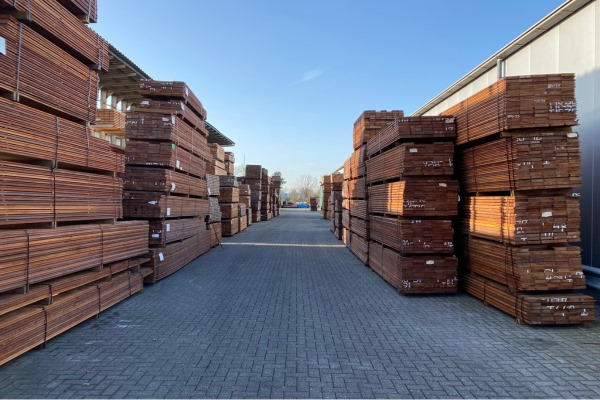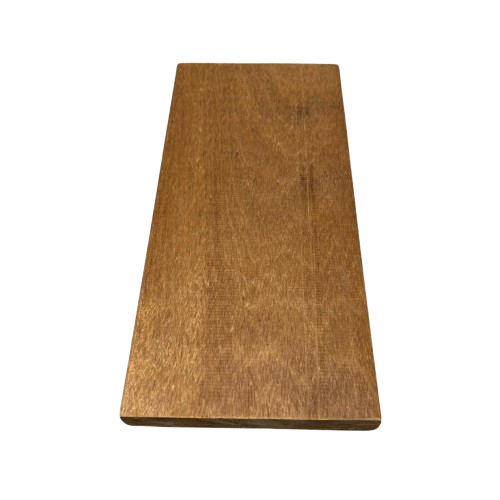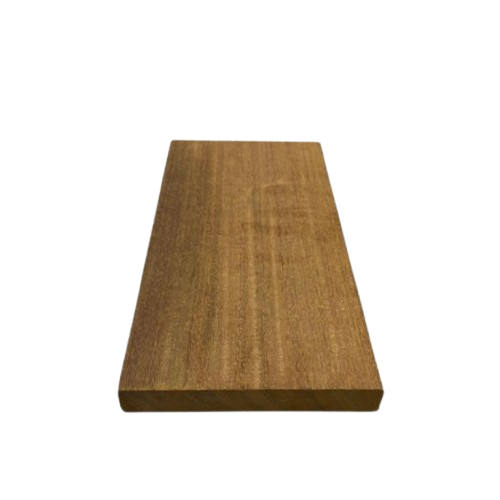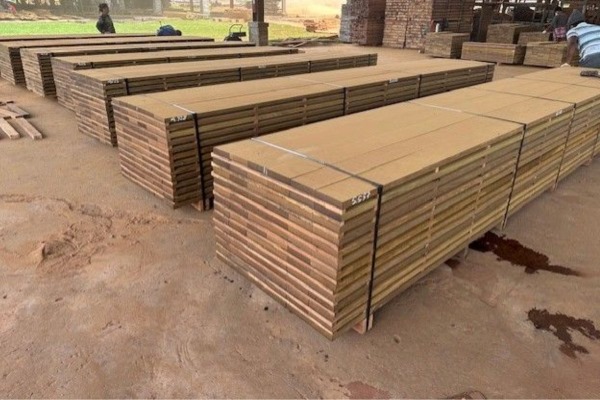Since Ipé was recently added to the CITES list, the availability of this popular hardwood has become restricted, making it more difficult for businesses and builders to access. Fortunately, sustainable alternatives are available that offer similar qualities and performance. One such option is Djindja Udu, a premium tropical hardwood that stands out as an excellent alternative to Ipé. Renowned for its strength, durability, and resistance to moisture, fungi, and pests, Djindja Udu delivers the luxurious appearance and long-lasting performance of Ipé while providing a more accessible and environmentally friendly solution.

Djindja Udu Compared to Ipé
The Properties of Djindja Udu Compared to Ipé
Djindja Udu
Ipé
Density (at 12% moisture content): 950 kg/m³
Bending strength (at 12% moisture content): 89 N/mm²
Shrinkage (at 12% moisture content): Radial 2.8%, Tangential 5.6%
Durability:
The heartwood is durable (Class 1), and the sapwood is resistant to insect infestation, with a rating of good to very good.
Density (at 12% moisture content): 1050 kg/m³
Bending strength (at 12% moisture content): 184 N/mm²
Shrinkage (at 12% moisture content): Radial 2.3%, Tangential 3.2%
Durability:
The heartwood is very durable (Class 1), and the sapwood is highly resistant to insect infestation.


Ipé on the CITES List: What Does This Mean for Availability?
Ipé has long been a highly sought-after hardwood in the timber industry due to its superior hardness, durability, and aesthetic appeal. However, the availability of Ipé is becoming increasingly limited, and this trend is set to intensify with its recent inclusion on the CITES list, which will take effect on November 25, 2024.
What is the CITES List?
CITES (Convention on International Trade in Endangered Species of Wild Fauna and Flora) is an international agreement aimed at regulating the trade of endangered species, including certain types of wood, to prevent overexploitation and ensure their survival.
What Are the Impacts of Ipé’s Inclusion on the CITES List?
With Ipé’s inclusion on the CITES list, trade in this prized hardwood will be subject to stricter regulations, including new permit and documentation requirements for both imports and exports. This is likely to further reduce the availability of Ipé and drive up prices. For businesses relying on Ipé for their projects, this is a key moment to consider alternative hardwood options.

